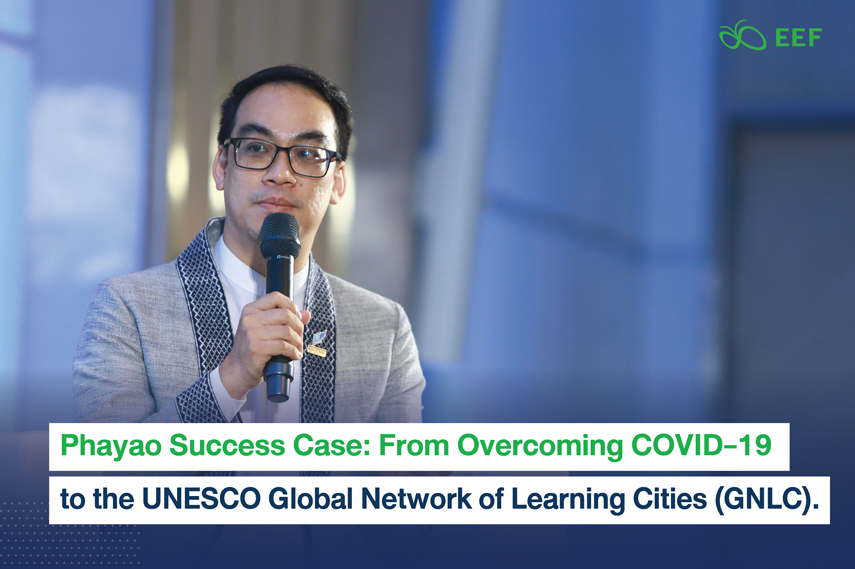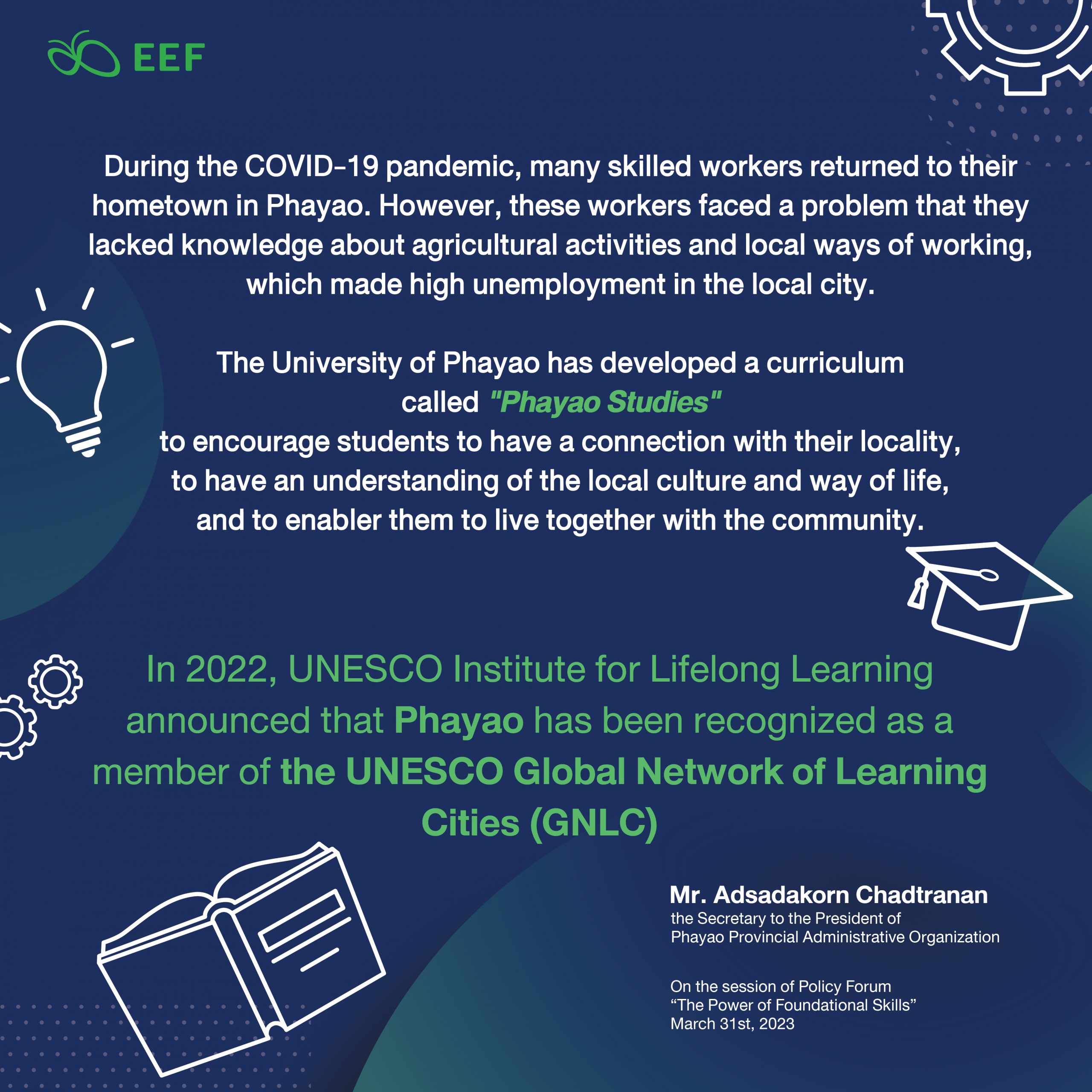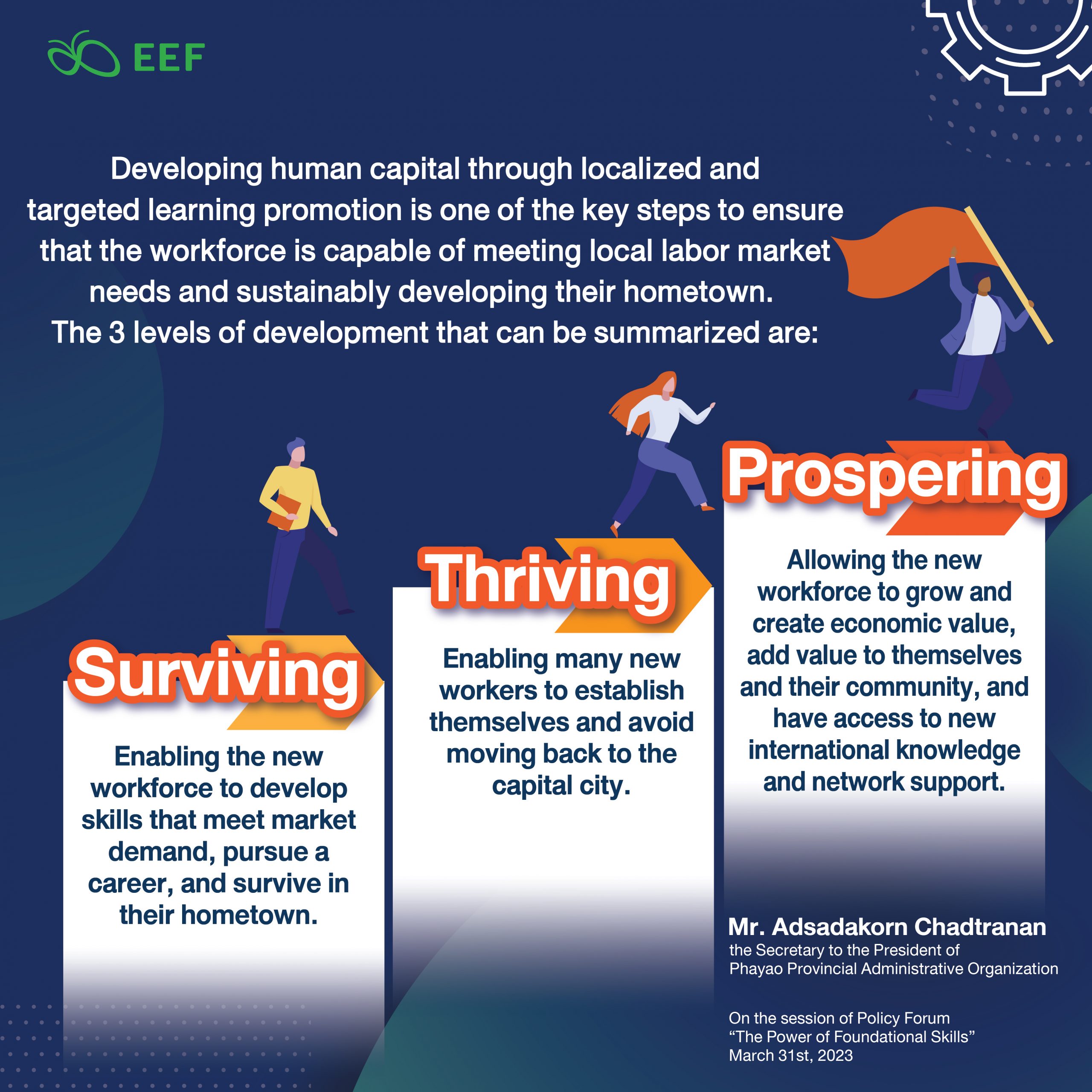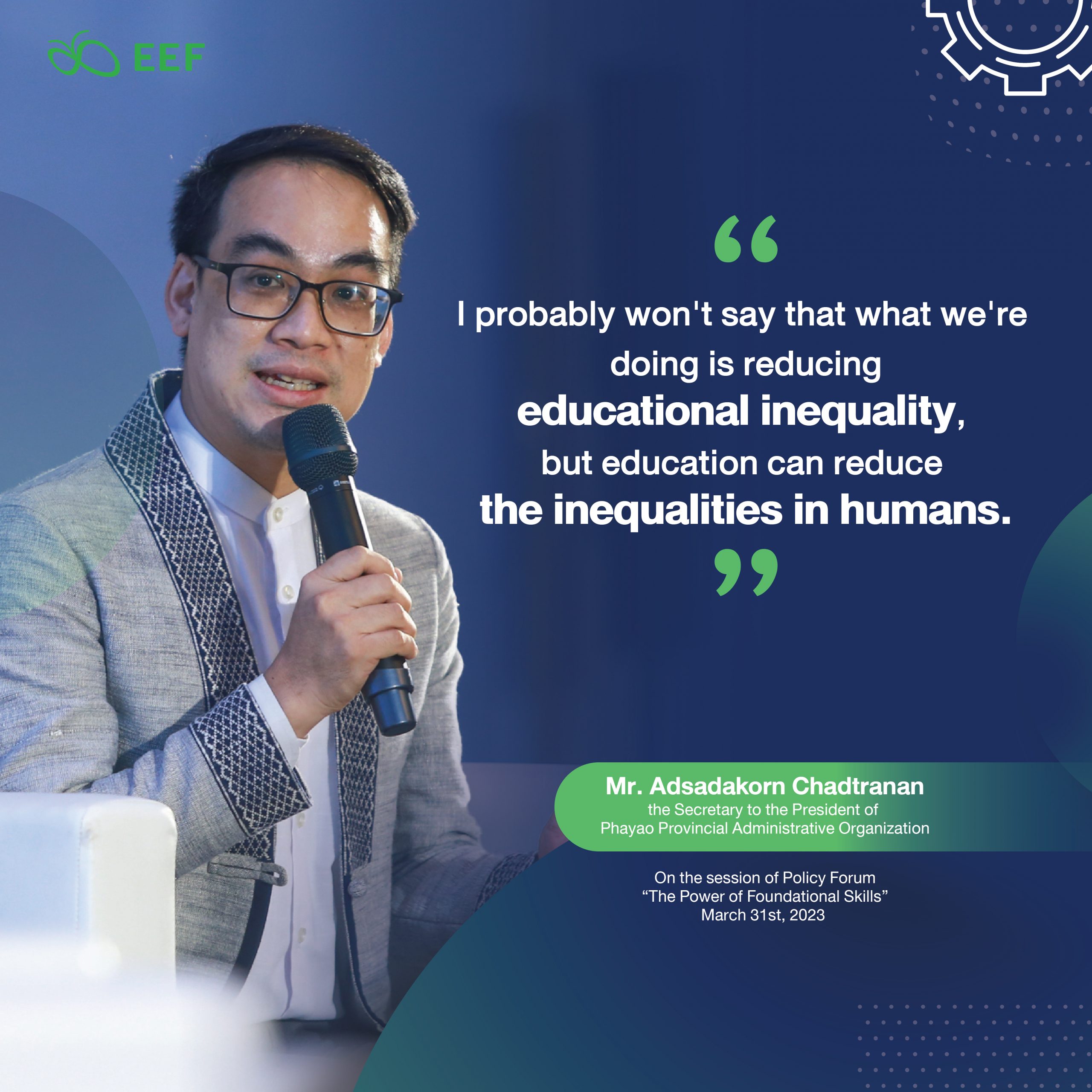
The development of education in the Phayao province of Thailand is considered a successful model of local-level education development that meets the needs of students, communities, society, and the labor market. This has resulted in Phayao being officially recognized as a member of the UNESCO Global Network of Learning Cities (GNLC).
On Friday, March 31st, 2023, the signing ceremony was held to record the collaboration between the Equitable Education Fund (EEF) Thailand and the World Bank, as well as a forum on the Power of Skills to Develop the Readiness in the Future of the Thai Labor Market at the Asawin Grand Convention Hotel. Representatives from both the public and private sectors, including the Department of Skill Development, the Ministry of Labor, Bangkok Metropolitan, Representatives from the Central Group, and the Provincial Administrative Organization of Phayao were in attendance.
According to Mr.Adsadakorn Chadtranan, the Secretary to the President of the Phayao Provincial Administrative Organization, “During the COVID-19 pandemic, many skilled workers returned to their hometown in Phayao. However, these workers faced a problem that they lacked knowledge about the community or connections to the local area. This was because most of them had moved away since their school years and spent more than half of their lives in other places. Although they possessed work skills, they lacked knowledge of agricultural activities and local ways of working, which caused high unemployment in the local city.“

The province of Phayao has a population of approximately 450,000 people, with about 50,000 students in the education system, around 5,000 of them being high school graduates who need to choose to continue their education at the high school level or pursue vocational education. The establishment of the University of Phayao (UP) in 2010 has allowed students in the area to pursue education up to the undergraduate level. However, graduates still need to gain the skills and knowledge that align with the local labor market, such as in the agricultural sector, and they need an understanding of the local culture. Meanwhile, parents are busy working and cannot spend time with their children, which places the burden of learning on the students and educational institutions.
Therefore, the University of Phayao has developed a curriculum called “Phayao Studies” to encourage students to have a connection with their locality, to have an understanding of the local culture and way of life, and to enabler them to live together with the community.
Educational experts also agreed that the problems in Phayao province are similar to the challenges that many cities face, which are life skills. Students are unable to live their lives in rural areas, while the elderly have to keep up with the digital era and the internet. Hence, the University of Phayao collaborated with the Provincial Administrative Organization of Phayao to create lifelong learning spaces across the entire province of Phayao.
In the province of Phayao, there are already about 200 primary schools, 20 secondary schools, and 10 vocational colleges, which are sufficient to accommodate students in the system. However, there is a need for learning spaces for students who are migrant workers or those who have returned to their hometowns. This need is being addressed by the establishment of new learning spaces, which are supported by both the local communities and the University of Phayao. The education provided in these learning spaces included life skills, adaptation to the local environment, and cross-cultural understanding between residents of the original community and those who have returned. There are also learning spaces for disabled children, autistic children, single mothers, and informal workers, among others. Currently, there are 20 learning spaces in the city area, and the initiative is expanding to 9 other districts. Moreover, some abandoned schools can be renovated and repurposed to serve the needs of the community, including temples that are closely linked to the way of life and serve as shelter and support for children and youth.
“Although rural residents tend to be shy and not gather together to negotiate for their rights, Phayao province has helped to establish or form groups, with support from various groups of people, including the university. Temples are also important in creating learning spaces. Many disadvantaged or needy children still depend on them, especially those who do not live with their parents or those who stay with elderly grandparents.” Mr.Adsadakorn Chadtranan emphasized.
In 2022, UNESCO Institute for Lifelong Learning announced that Phayao has been recognized as a member of the UNESCO Global Network of Learning Cities (GNLC) due to joint development efforts. In the future, the learning area will be expanded to include vocational education and community areas.

Developing human capital through localized and targeted learning promotion is one of the key steps to ensure that the workforce is capable of meeting local labor market needs and sustainably developing their hometown. The 3 levels of development that can be summarized are:
- Surviving: Enabling the new workforce to develop skills that meet market demand, pursue a career, and survive in their hometown.
- Thriving: Enabling many new workers to establish themselves and avoid moving back to the capital city.
- Prospering: Allowing the new workforce to grow and create economic value, add value to themselves and their community, and have access to new international knowledge and network support.
Mr.Adsadakorn gave an example “This shirt I’m wearing today was from an engineer who returned to his hometown in Phayao after losing his job in the city and designed a new weaving tool to weave ancient patterns into modern clothes. This enabled him to stay and have new ideas for future endeavors.”
“I have to thank EEF (Thailand) and the World Bank for providing the opportunity for Phayao province. This was an important opportunity that allowed us to begin thinking from the beginning and ensuring that development is appropriate for Phayao.”

“Lastly, I probably won’t say that what we’re doing is reducing educational inequality, but education can reduce the inequalities in humans.” The Secretary to the President of Phayao Provincial Administrative Organization concluded.
Source:
Event News: Here
Event Picture: https://en.eef.or.th/media/
Event Record: https://web.facebook.com/EEFthailand/videos/235613462187952

